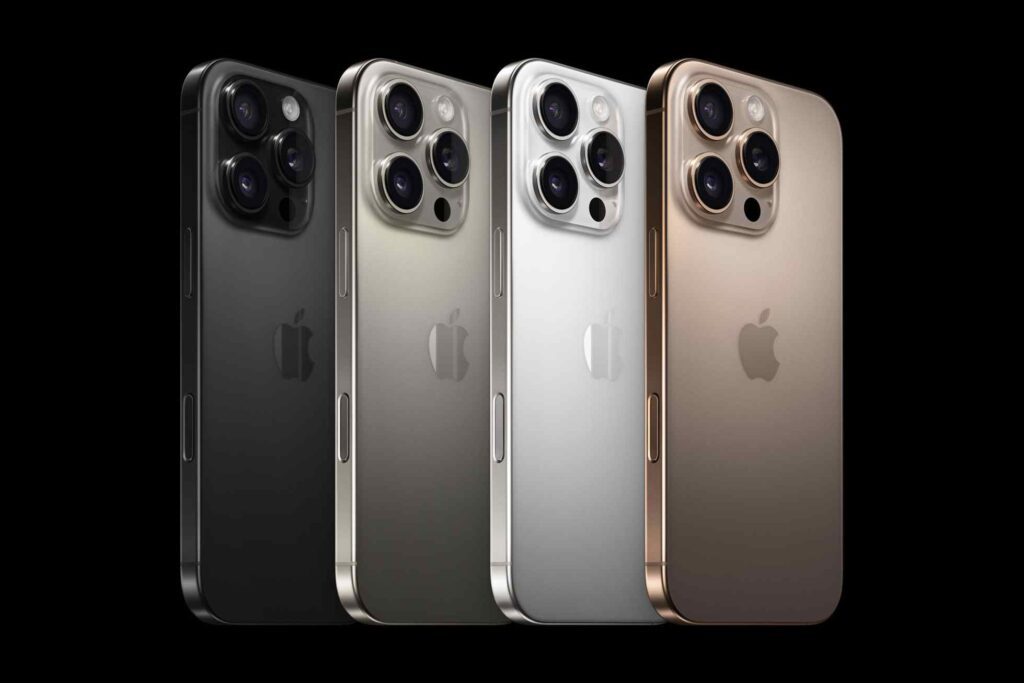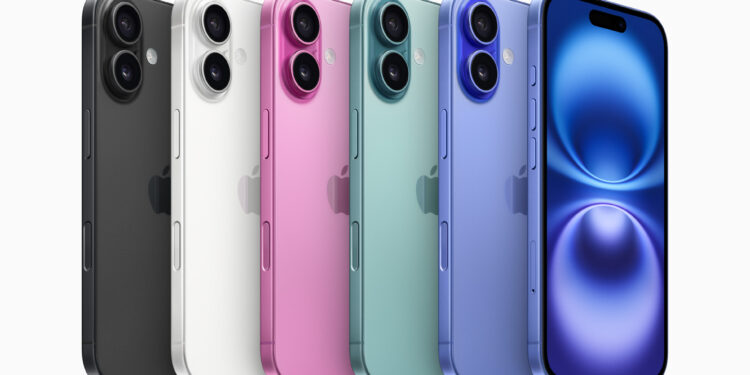Apple has officially launched its newest iPhone lineup, introducing the iPhone 16, iPhone 16 Plus, iPhone 16 Pro, and iPhone 16 Pro Max. The new devices sport hardware upgrades like larger screens and more powerful cameras, however, their AI capabilities truly steal the show.
The latest iteration of iPhones are equipped with what the tech giant dubbed as ‘Apple Intelligence,’ the company’s advanced artificial intelligence platform that integrates deep learning and generative AI. Apple CEO Tim Cook described the iPhone 16 series as “the smartest, most intuitive iPhones we’ve ever made,” emphasising how AI will reshape how people interact with their devices.
Apple Intelligence: The new brain for iPhones
The Apple Intelligence platform is built directly into iOS 18, offering a range of features that make the iPhone 16 series smarter and more responsive to its users’ needs. It is powered by a 16-core neural engine in the A18 Pro chip, the AI is designed to handle everything from on-device privacy-focused processing to real-time information gathering and interaction.
A key focus of Apple Intelligence is photography. The iPhone 16 series uses computational photography to elevate even the most basic snapshots into professional-quality images. This means that the device’s system analyses scenes in real-time, optimising lighting, focus, and colour without the need for manual input. The 48-megapixel fusion camera, in particular, uses AI to fuse multiple image frames to create sharper, more detailed photos, especially in low light.
Apple Intelligence also introduces a unique feature allowing users to gather information from their environment. Take a photo of a restaurant, and your iPhone will instantly display its reviews and business hours. Point your camera at a concert flyer, and the phone will automatically offer to add the event to your calendar. This visual recognition feature is reminiscent of Google’s Lens technology but promises to integrate more seamlessly with the Apple ecosystem.
Another AI-driven feature allows users to search for photos or moments in videos quickly and accurately. The software can identify specific objects, people, or locations in photos. Apple also hinted that this AI-powered search could soon expand to other types of media, including music and documents.

Siri get smarter with AI
The tech giant’s proprietary digital assistant is also getting an upgrade with Apple Intelligence. Siri is now more conversational, allowing users to either speak or type queries naturally. The AI-driven improvements enable Siri to handle more complex tasks, such as summarising text messages or emails and offering personalised recommendations based on user behaviour.
Apple also announced that Siri will be able to act as a personal assistant for a broader range of third-party apps, including Slack and Goodreads. This means users can ask Siri to send messages, set reminders, or even search for specific books or information, all while maintaining user data privacy. By processing much of this data directly on the device via Private Cloud Compute, Apple ensures that user information isn’t stored on external servers.
Powerful hardware
To support these advanced AI features, Apple has introduced its new A18 chip for the iPhone 16 and 16 Plus and the A18 Pro chip for the iPhone 16 Pro and Pro Max. Built on a second-generation 3-nanometer architecture, these processors are optimised for generative AI workloads, such as real-time text prediction, complex photo editing, and high-speed computational tasks. According to Apple, the A18 Pro chip is up to 15 percent faster than last year’s model and consumes 20 percent less power, making it both faster and more efficient.
The enhanced processing power also allows for machine learning capabilities that go beyond typical smartphone tasks. For instance, the new Audio Mix feature uses AI to separate background noise from speech in videos, allowing for clearer audio playback and editing. This feature, described as an “industry first” by Apple, could be a game-changer for video creators and podcasters who want to deliver professional-level content directly from their phones.
AI-powered photography and videography
The iPhone 16 Pro models, in particular, shine with their 48-megapixel fusion cameras and 5x optical zoom, but it’s the integration of AI that brings a new level of creative control to users. With the help of AI, these cameras can now adjust settings based on context—automatically switching between different lenses to provide the best shot possible, whether you’re taking a close-up or a wide-angle photo.
For video enthusiasts, Apple has introduced 4K video capture at 120 frames per second, the highest resolution and frame rate available in any smartphone camera. AI comes into play by enabling users to adjust frame rates after recording, giving unprecedented flexibility in post-production, all from the convenience of the iPhone’s Photos app. You no longer need to carry a professional camera to shoot studio-quality footage—Apple is positioning the iPhone 16 Pro series as a portable production powerhouse.
Battery life and titanium build
Beyond intense focus on AI and performance, Apple also addressed hardware durability and efficiency. The iPhone 16 Pro Max is touted as having the longest battery life ever in an iPhone, although exact figures weren’t provided. Both Pro models are housed in titanium frames, which Apple says are 50 percent lighter than stainless steel and more resistant to scratches.
The iPhone 16 series is available in four finishes, including black, white, natural, and a new desert color. These finishes complement the larger, edge-to-edge displays, which Apple claims are its best iPhone screens ever, featuring thinner borders and improved brightness.
Price and availability
The iPhone 16 Pro starts at $999, while the iPhone 16 Pro Max will retail for $1,199. Preorders will begin this Friday, with the phones hitting stores on September 20.










Discussion about this post